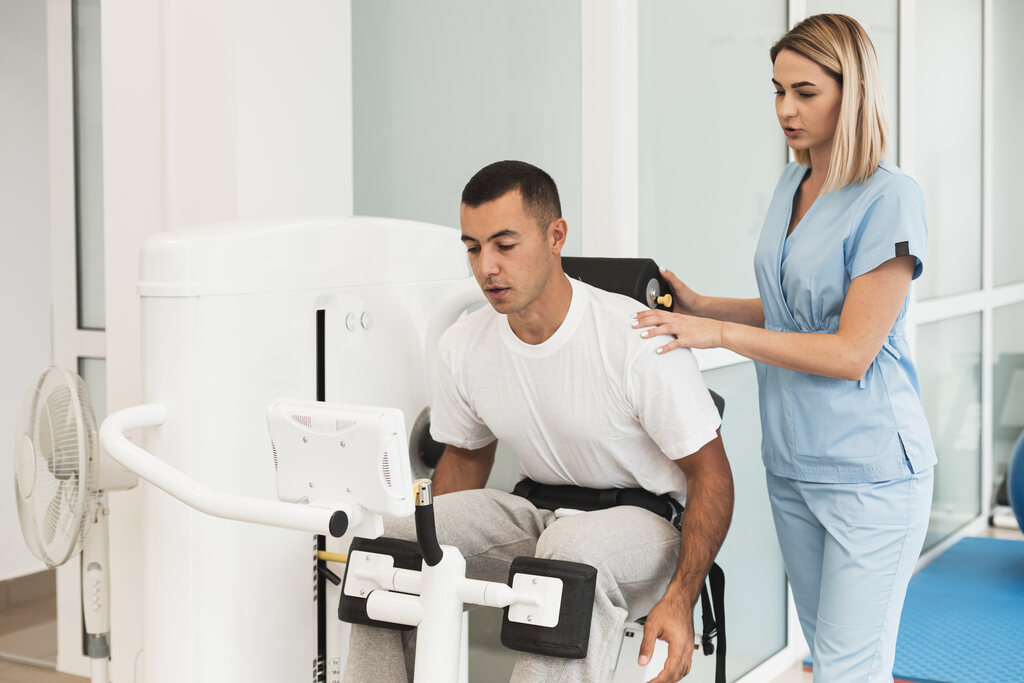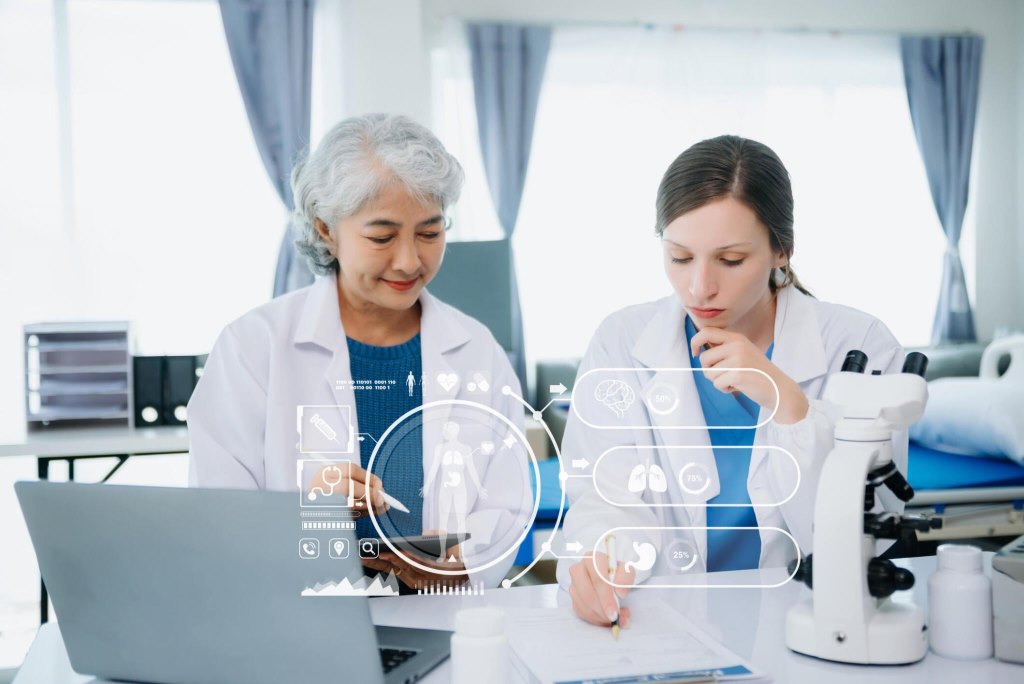In the pursuit of holistic well-being, incorporating regular massage therapy into your health and fitness routine can be a game-changer. Beyond its reputation for relaxation, massage therapy offers a myriad of benefits that extend to physical recovery, stress management, and overall fitness enhancement.
This comprehensive guide explores the transformative effects of regular massage therapy on your health and fitness journey, unraveling the science behind its impact and unveiling the diverse modalities that cater to specific fitness goals.
The Basics of Massage Therapy
Regular massage therapy offers a plethora of physical benefits that contribute significantly to overall well-being. One of its primary advantages lies in enhanced muscle recovery. Modalities like deep tissue massage and sports massage target muscle soreness and tension, promoting faster recuperation after intense workouts.
The Holistic Approach of Massage
Massage therapy operates on the principle that the body and mind are interconnected. By addressing both physical and mental aspects, regular massage sessions provide a holistic approach to well-being. Understanding this holistic perspective lays the foundation for appreciating the multifaceted benefits of integrating massage into your health and fitness routine.
- Mind-Body Connection: Massage therapy recognizes the intricate connection between the mind and body, emphasizing that physical and mental well-being are interdependent.
- Balancing Energy Flow: Certain massage modalities, such as Thai or Shiatsu massage, focus on balancing the body’s energy flow, promoting harmony and vitality.
- Stress Reduction: Massage is known for its stress-reducing effects, addressing both physical tension and mental stressors, contributing to a holistic sense of relaxation.
- Emotional Well-Being: By promoting the release of endorphins and reducing cortisol levels, massage positively impacts emotional well-being, fostering a positive mood and mental clarity.

Mental and Emotional Well-Being
Regular massage therapy contributes significantly to mental and emotional well-being, providing a sanctuary for stress relief and emotional balance. One of its notable advantages is stress reduction through the release of tension and the promotion of relaxation.
Stress Reduction and Mental Clarity
Fitness is not only about physical endurance but also mental resilience. Regular massage therapy serves as a powerful stress management tool by reducing cortisol levels and promoting the release of endorphins. This dual action not only alleviates stress but also enhances mental clarity, creating a positive mindset crucial for sustained commitment to a fitness journey.
Improved Sleep Quality
Quality sleep is a cornerstone of overall health and fitness. Regular massage has been linked to improved sleep quality by inducing relaxation and reducing insomnia-related symptoms. The calming effects of massage contribute to better sleep patterns, allowing the body to recover and optimize performance during waking hours.
Modalities Tailored to Fitness Goals
Exploring massage modalities tailored to fitness goals allows individuals to customize their therapeutic experiences, optimizing the benefits for specific needs. For athletes and those engaged in rigorous physical activities, deep tissue massage emerges as a key modality. Targeting the deeper layers of muscle tissue aids in alleviating muscle soreness, preventing overuse injuries, and maintaining optimal muscle function.
Deep Tissue Massage for Athletes
Athletes pushing their physical limits can benefit immensely from deep tissue massage. This modality targets the deeper layers of muscle tissue, releasing chronic tension and promoting optimal muscle function. Incorporating deep tissue massage into a routine aids in preventing overuse injuries and maintaining peak athletic performance.
- Targeted Muscle Relief: Deep tissue massage focuses on specific muscle groups, providing targeted relief to areas of chronic tension or tightness often experienced by athletes.
- Breakdown of Scar Tissue: The pressure applied during deep tissue massage helps break down adhesions and scar tissue, promoting better muscle flexibility and function.
- Improved Blood Circulation: By reaching deep layers of muscles, this modality enhances blood circulation, ensuring efficient delivery of oxygen and nutrients to tissues, and aiding in the removal of metabolic waste products.
The Science Behind the Healing Touch
The efficacy of massage therapy lies in the intricate science behind the healing touch, as it orchestrates a symphony of physiological responses within the body. One key mechanism is the enhancement of blood circulation, promoting the efficient delivery of oxygen and nutrients to muscles and tissues.

Circulatory Benefits
The physiological impact of regular massage is rooted in its ability to enhance blood circulation. Improved circulation facilitates the delivery of oxygen and nutrients to muscles, aiding in their recovery and overall health. This increased blood flow also contributes to the removal of metabolic waste products, supporting the body’s natural healing processes.
Neurological Effects
Regular massage has profound effects on the nervous system. By promoting the release of endorphins, massage contributes to mood elevation and pain relief. Additionally, the activation of the parasympathetic nervous system induces a state of deep relaxation, countering the stress response and promoting overall mental well-being.
- Release of Endorphins: Massage therapy triggers the release of endorphins, the body’s natural painkillers and mood elevators. This neurochemical response contributes to a sense of well-being, alleviates pain, and promotes relaxation.
- Enhanced Mood and Stress Reduction: The neurochemical changes induced by massage lead to enhanced mood and stress reduction. The calming effect on the nervous system contributes to a reduction in anxiety and helps individuals manage stress more effectively.
- Improved Sleep Quality: The relaxation response initiated by massage extends to improved sleep quality. By calming the nervous system, massage therapy assists in creating optimal conditions for restful and rejuvenating sleep.
Impact on the Immune System
A robust immune system is vital for overall health and fitness. Scientific studies suggest that regular massage can positively influence the immune system by increasing the activity of natural killer cells and enhancing immune function. This immune-boosting effect adds another layer of support to individuals committed to their fitness journey.

Conclusion
Incorporating regular massage therapy into your health and fitness journey is a holistic approach that addresses both the physical and mental dimensions of well-being. From enhanced muscle recovery and injury prevention to stress reduction and improved sleep quality, the benefits of massage extend far beyond relaxation.









